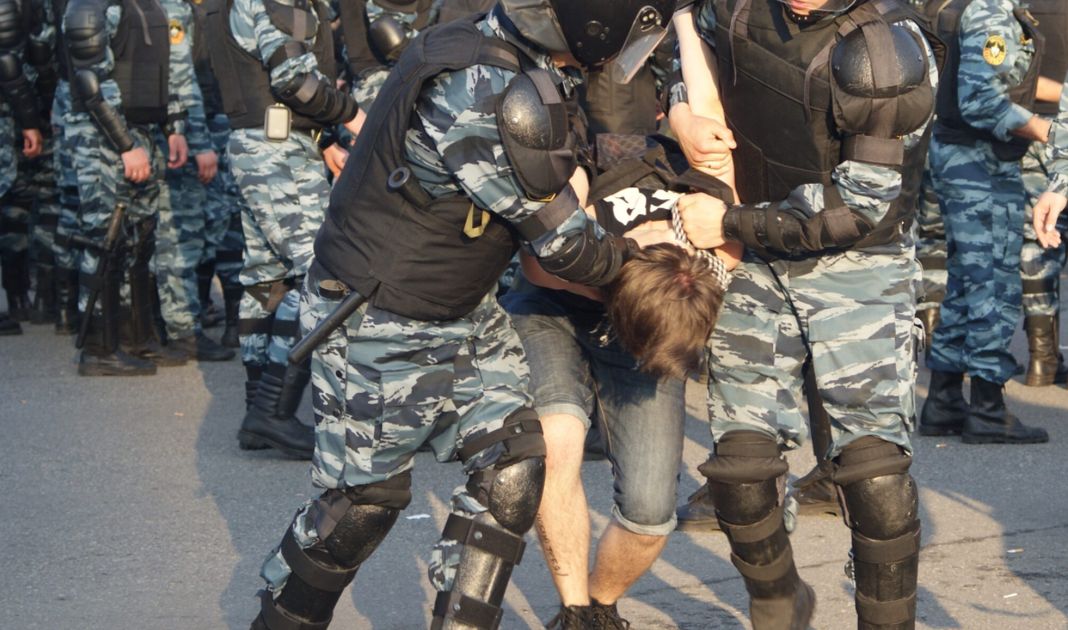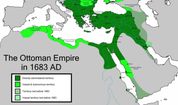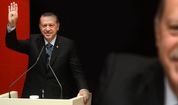Intermarium Weekly 05-11.08.2020

(commons.wikimedia.org)
Presidential elections in Belarus
The nature of the Protests in Belarus
As Lukashenka has predicted, the protests have erupted in Minsk and in some other cities. The most striking element of the Belarusian protests is that they do not have a specific location or concentration as it usually happens. The regime is preventing the creation of “Maidan” or “Tahrir” style protests. The state tries to keep them sporadic and disorganized. These two goals were achieved until now by the regime. The protesters do not have a specific location “fortress” and almost all leaders left the country. The authorities turned off the Internet and kept under careful control of the telecommunication between the protesters and foreign supporters. Only during the first protest-night, the regime arrested thousands of people and these numbers are increasing. Protesters are still trying to build the barricades in order to more successfully resist the police. It is highly unlikely that resistance is going to finish this week, but authorities are going to succeed in keeping protesters sporadic. Without leadership, the protesters would not be able to gain political success. It seems that authorities will be encouraging the political opposition to leave the country.
On August 10, the election commission updated the preliminary data on the results of voting in the presidential elections in Belarus. Thus, the incumbent head of state Alexander Lukashenko has 80.08% (4,659,561 votes), Svetlana Tikhanovskaya 10.09% (587,411 votes). No other candidate achieved more than 2%. With 5,818,965 votes cast in total, turnout was 84.27% although how believable any of these figures are is obviously anyone’s guess. Tikhanovskaya is reported to have fled to Lithuania amidst violent clashes between police and protestors.
Authoritarian leaders from various countries including China, Turkey, Central Asia, Russia congratulated Alexander Lukashenko. We can imagine that they breathed a collective sigh of relief at the news that Lukashenko intends to ‘stand his ground.’ Such figures see protests and revolutions as an external instrument that can be used against them.
The West reacted with the anticipated demands for democratic and fair elections and the release of all prisoners although there does appear to be a lack of unity. The threat of introduction of sanctions was voiced by only a tiny minority of European politicians. Of course, everything depends on the situation as it is developing on the streets of Minsk and other cities of the country. Poland has called for an Emergency EU Summit on Belarus and maybe this is the vehicle through which we see the introduction of sanctions against the regime.
Zelensky urges caution
As everyone waits for the dust to settle after disputed Presidential elections in Belarus, President Volodymyr Zelensky of Ukraine has taken a remarkably conservative line, calling on Belarusian society to work for “dialogue and tolerance.” He noted that the escalation of the confrontation due to distrust in the election results threatens the country with “bitter consequences.” This contrasts interestingly with the Polish approach, which has been reflexively supportive of the opposition.
Fate of the Wagner Group detainees
Russia is demanding the return of the arrested Russian citizens which Minsk believes belong to the Wagner Group and came to Belarus to organize anti-regime provocations. Ukraine is demanding the extradition of those people who were engaged into the military activities in the Donbas. Lukashenko does not want to play the Ukrainian game and has invited the General Prosecutors of the two countries in order to work out the situation. Russia denies any allegation and recently published materials claiming the entire operation was organized by the Ukrainian Intelligence Service in order to undermine Russia-Belarus relations. The fundamental element of Russian defense is that the tickets for the flight to Istanbul were bought from Kyiv although Ankara has remained silent on this so far.
A telephone conversation took place between Lukashenko and Putin at the initiative of the President of Russia. Lukashenko said after the call that “neither Wagners nor anything else can influence our relations with Russia.” He said that they were carefully examining the Russian version of events. After Putin, the Russian Minister of Foreign Affairs Sergey Lavrov also called Lukashenko in order to discuss issues with Russian oppositional journalists and “the fact of foreign interference” in Belarus’s elections.
Lukashenko on foreign intrigues
According to Alexander Lukashenko, the blocking of internet access allowed for detailed surveillance of the “foreign curators” of anti-regime protests, with puppeteers based in Czech Republic, Poland, Ukraine and Russia. He believes there is a hybrid war being carried out against Belarus, and that the country must be prepared for dirty tricks from all sides. Nonetheless, he stated, the strategy of energy diversification is going to continue with or without sanctions.
Oil imports from multiple sources
76,000 tons of US oil arrived in Klaipeda (Lithuania), destined for a rail terminal and then a refinery in the city of Novopolotsk in northern Belarus. It is said to have been specially developed as an analogue of Russian oil from the Urals used in European refineries. This is the second tanker delivery of American oil to Belarus. We expect the US to continue trying to establish such links with Belarus despite the political crisis following the election.
Likewise, 85,000 tons of Azeri light oil arrived in Odesa (Ukraine). It will be transported via the Odessa-Brody pipeline and one of the two lines of the Druzhba oil pipeline to the Mozyr refinery in southern Belarus. This is the sixth oil tanker to have been received by Ukrtransnafta since the beginning of the year.
Official opening of Astravyets
The nuclear power plant near the Belarusian border with Lithuania was officially opened shortly before the country’s presidential elections. This was a symbolic opening – the facility will unlikely start operations until the end of 2020/the beginning of 2021. It will have two Russian-made VVER reactors of 1,200 megawatts capacity each. The second one should begin operating a year after the first. Lithuania has called on the EU to take action against the plant, citing a failure to meet international safety standards. They will boycott Belarusian energy and call on others to do so too.
Made in Ukraine combat drone
State-owned R&D company “Luch” intends to create a full-fledged strike UAV, with a wingspan of 14 meters, two meters more than that of the Turkish Bayraktar TB2, and with a payload several times greater – 200-250 kg. Flight duration will be equal at 24 hours. This strike-drone has the working name Sokol-200. The difficulty will be not only to ensure high flight performance but also to create a fully autonomous aircraft. Ukrainian engineers are developing a full-fledged UAV with an automatic take-off and landing system, autonomous en-route flight using an inertial system with data transmission over a long-range secure communication channel. In order to complete the project it requires the implementation of difficult technological solutions, which are said to have already been worked out at various sites including the Neptune missile production hub.
Controversy over Chinese investments
A subsidiary of Beijing Skyrizon and the DCH Group of Ukrainian businessman Alexander Yaroslavsky and its affiliated companies are seeking regulatory approval from the Antimonopoly Committee of Ukraine (AMCU) to purchase shares of Motor Sich, a manufacturer of engines for airplanes and helicopters as well as industrial gas turbine units. Shares in the company have been frozen since April 2018 at the request of an investigator from the Security Service of Ukraine (SBU) in order to preserve material evidence in a criminal case initiated in July 2017.
During a visit to Kyiv at the end of August 2019, John Bolton, the then US President’s Security Advisor, spoke about US concerns about the sale of Motor Sich to Chinese owners. At the end of last year, Charge d’Affaires of the United States in Ukraine, William Taylor, said that the United States was counting on a new deal to attract an American or another investor to Motor Sich so that the enterprise would not be sold to a Chinese buyer. Apparently, very little has come of such talk so far.
Chinese investors in Motor Sich, represented in Ukraine by Skyrizon Aircraft Holdings Limited, claim to be confused by the hold up: “From the point of view of economic logic and the economic sovereignty of the state of Ukraine, which we deeply respect, the actions of individual representatives of power structures look very strange. International law states that freedom of entrepreneurial activity can only be limited by legal norms and nothing else. In the case of Motor Sich, all the requirements of Ukrainian legislation were met, both in the process of acquiring a stake in 2016 and in the subsequent period. However, we are faced with inexplicable resistance that prevents the company from reaching the heights to which we intend to raise it.”
President Volodymyr Zelenskyy addressed a letter to Prime Minister Denis Shmygal, in which he urged to take urgent measures together with the National Security Council and the Security Service of Ukraine to protect the economic interests of the state. In the letter, he indicated the situation about the “Motor Sich” plant. In turn, the Prime Minister of Ukraine said that the fate of Motor Sich has become a matter of geopolitics. The head of state insists that measures are needed to exclude the economically unjustified alienation of property of enterprises that are of strategic importance for the economy and security of the state.
President Volodymyr Zelensky has written to Prime Minister Denis Shmygal, urging him to take urgent measures together with the National Security Council and the SBU to protect the economic and strategic interests of the state, including the Motor Sich plant. Shmygal has said that the fate of Motor Sich has become a matter of geopolitics.
Ukraine’s presence on the Black Sea
Negotiations on a joint Ukrainian-Italian project to build large-capacity ships are being conducted in Rome, Italy, according to Ukraine’s Minister of Internal Affairs Avakov Arsen. During the visit of Ukrainian representatives to the Italian Republic, the possibility of purchasing special ships was discussed with a representative of the Italian shipbuilding industry – T. Mariotti – and the Italian State Export Agency. Ships are required for the State Emergency Service of Ukraine and for the State Border Guard Service of Ukraine. Ukraine is aiming to negotiate for production to be done locally, within the same framework that has been used in cooperation with France. Ukraine is seeking the restoration of its naval capabilities in the Black Sea. Of course, it is impossible to speak about full restoration but they at least want to keep the coastal line (which is under Ukrainian control) secure.
Lithuania splashes out on defence
The Lithuanian Defense Ministry is reporting about a shipment of supplementary Javelin medium-range anti-tank missiles, worth just over $31 million which has been handed over to Lithuania as part of US assistance to the country. Lithuania is planning to purchase missiles worth $104 million over the next decade, including under a $13 million procurement contract signed in late 2019, the ministry said in a press release. The systems will be assigned to different units of the Lithuanian Land Force as part of steps to strengthen defense capabilities of Lithuania. Robert S. Gilchrist, US ambassador to Lithuania, said the Javelin “missiles will increase Lithuania’s interoperability with US military forces and, above all, signify the United States’ unwavering commitment to the security of our valued Allies.” The Javelin medium-range anti-tank missile system is an advanced weapon capable of destroying targets at a distance of between 75 meters and 2.5 kilometers. Additionally, the country this week has conducted training exercises with the German Air Force in Lithuania.
The Lithuanian Armed Forces Air Force Base in Šiauliai has been and is being upgraded to enhance its readiness to host NATO allies, strengthen deterrence, and improve interoperability. €24 million has been allocated since 2016 from the U.S. European Reassurance Initiative to build the new infrastructure, which includes new ground equipment maintenance hangars, an OPS facility, three fighter aprons, up-to-date fighter arresting gear and lighting installation of one of the aprons, several taxiways and areas and roads for ground vehicles. The upgrade is due to be completed by the end of the year. Šiauliai is located between the major Baltic cities of Riga, Klaipėda and Kaunas.
Increase in US troop numbers in Poland planned
The Americans will deploy the reactivated 5th Corps of the US Army in Poland. Negotiations on a declaration on strengthening Polish-American military cooperation took place in Kraków. Polish Defense Minister Mariusz Blaszczak stressed that the declarations signed by the presidents of Poland and the United States ensure the continued presence of US troops in the country. Chief of Staff of the US Army, General James McConville, said that the decision to reactivate the 5th Corps testifies to the activity of the United States for a stronger Europe. On Monday night, Pentagon chief Mark Esper said that an agreement to strengthen US forces in Poland was ready and approved by both countries. He added that the agreement would strengthen NATO and further deter Russia. In addition to increasing the number of American soldiers by 1,000, the command of the US Army Corps will be deployed in Poland.
Strife in Sofia
Protests are continuing in Bulgaria, fueled by aggressive behavior towards journalists from Alternative TV and Radio Free Europe. Several young men tried to expel them from the conference of the ruling GERB party. The chaotic scenes have been widely shared on Facebook. With chants of “Ostravka!” (‘Re-sig-nation!’) heard in the background, Prime Minister Boyko Borisov stated: “The people are our power. If the people don’t want us, we won’t spend a day more in charge.” Protesters crowded around the building and for a while blocked parts of a crossroad nearby, which led to heavy traffic jams. Police tactics towards the protests seem to have become more aggressive as the government’s stance has toughened. For the first, we have seen attempts made to dismantle the protest camps.
Autor
Ridvan Bari Urcosta
Senior Analyst at Strategy&Future






Trwa ładowanie...